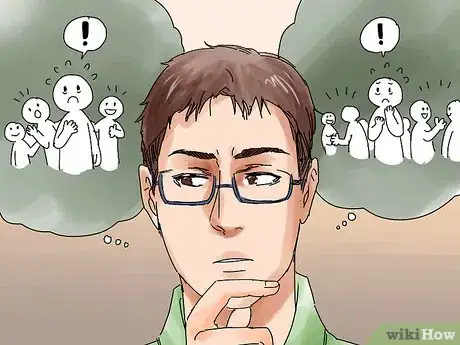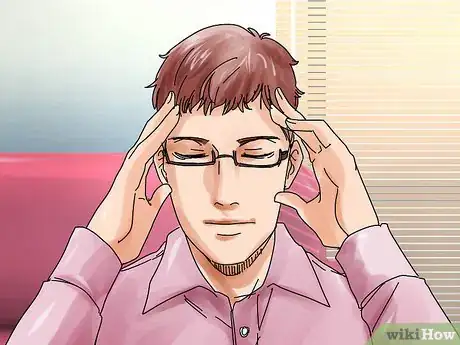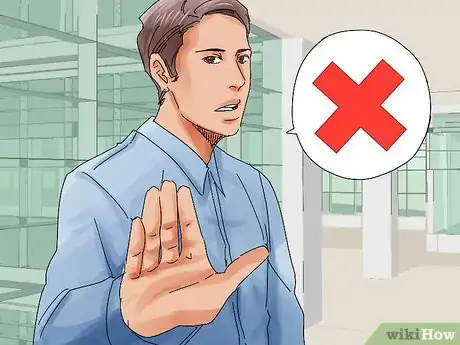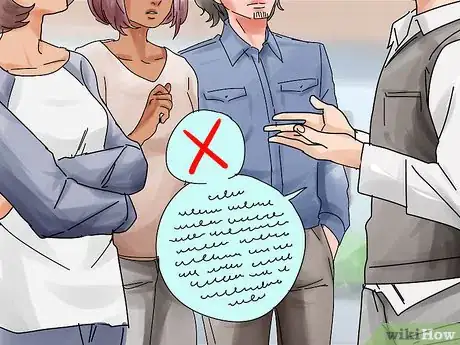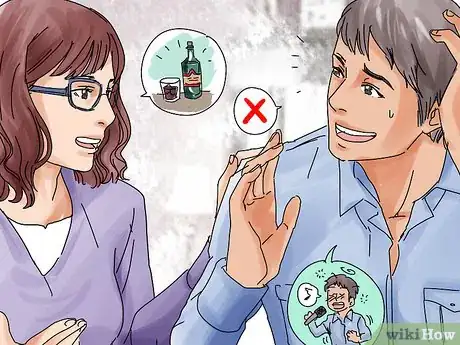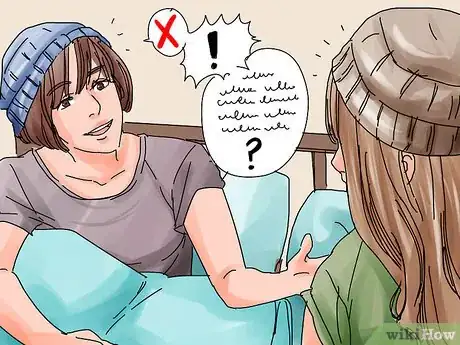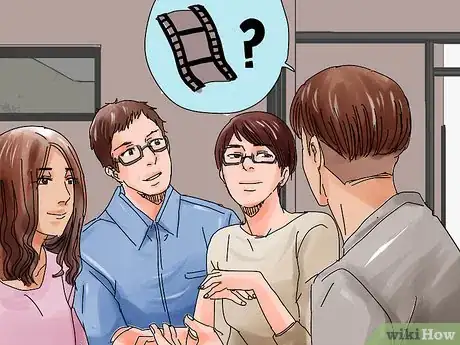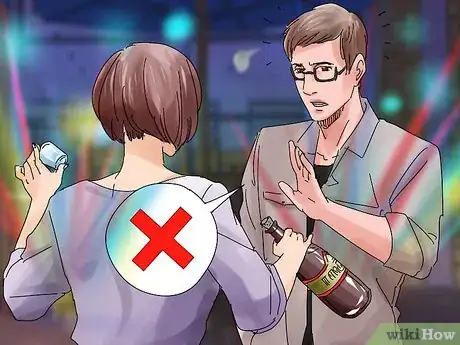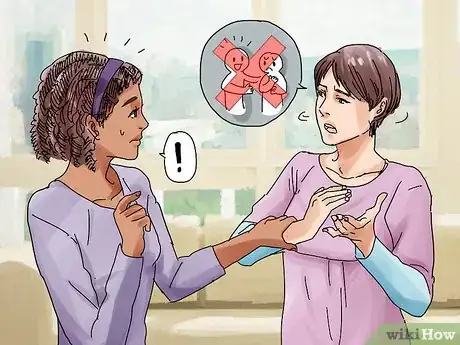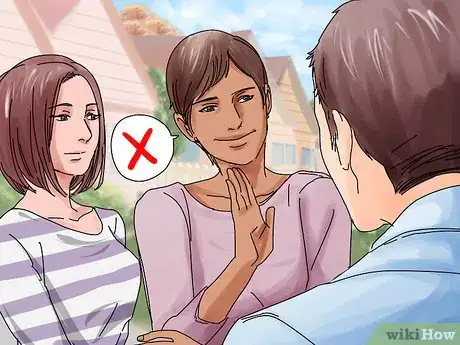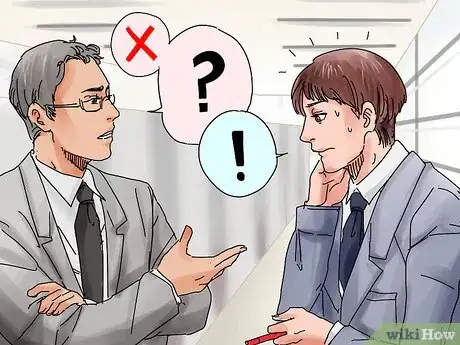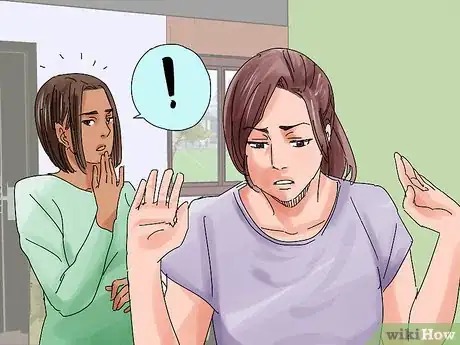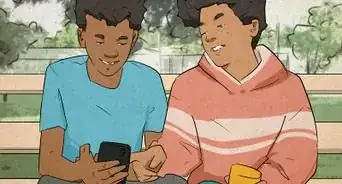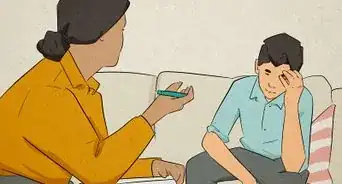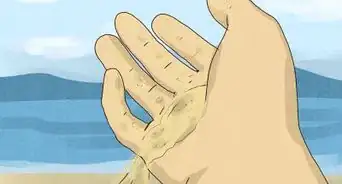This article was co-authored by Peggy Rios, PhD. Dr. Peggy Rios is a Counseling Psychologist based in Florida. With over 24 years of experience, Dr. Rios works with people struggling with psychological symptoms such as anxiety and depression. She specializes in medical psychology, weaving together behavioral health programs informed by empowerment theory and trauma treatment. Dr. Rios uses integrated, evidence-based models to provide support and therapy for people with life-altering medical conditions. She holds an MS and Ph.D. in Counseling Psychology from the University of Maryland. Dr. Rios is a licensed psychologist in the state of Florida.
There are 7 references cited in this article, which can be found at the bottom of the page.
This article has been viewed 118,168 times.
Peer pressure is a normal factor in the process of growing up. However, sometimes we can be pressured to do things against our will. This can happen especially among teenagers: saying yes to something seems to be the easier way to fit in, even when you don't feel like doing what you're asked to. There are many ways you can recognize peer pressure, avoid situations where this might happen or say no without making it sound awkward or judgmental.
Steps
Avoiding Negative Peer Pressure
-
1Identify direct and indirect pressure. Peer pressure can be both direct, when someone tells you to do something or offers you something, or indirect, if you feel pressured to do something by a certain environment or situation. [1] If you're at a party where everyone drinks, you might feel you have to do it too in order to fit in, even if no one asks you to. In the first case, you'll have to learn how to say no politely but firmly.
- In the case of indirect peer pressure, you might not find yourself in a situation where you have to say no. However, you'll still have to develop a strategy of self-control to stick to your principles and habits and do only what you're comfortable with.
-
2Be prepared. Learn to identify those situations where unwanted offers or behaviors are most likely to happen. Plan ahead what you'd say or how you'd act to turn down an offer.
- Being prepared will allow you to face these situations more open-mindedly. It's okay to hang out with people who have different habits from yours. Knowing what to expect will help you respect their decisions as well as stand by yours.
Advertisement -
3Avoid situations that can lead to negative peer pressure. You're probably the best one to know which environments or places are likely to lead to an unwanted situation. If you're not confident you can say, the best option is probably to avoid these places outright. Depending on what you're trying to avoid, these might include:
- Environments where you'll feel uncomfortable or out of place
- Parties or clubs where most people will be drinking and smoking
- Private meetings with someone you don't want to have sex with
-
4Act like a leader. It's much easier to say yes to anything, even if it's something we don't want to do. However, showing that you're in control of your life will get you much more respect from your peers in the long run. It's not the easiest course of action, but it ultimately pays off and helps you be surrounded only by those who truly care about you. [2]
- For example, show your friends you feel confident about your lifestyle and personal tastes. Don't mimic what they do, but stick to what you like and pursue it.
- Be proactive in suggesting activities and taking care of their organization. If you come up with fun ideas, others will look for you when they want to have a good time and follow your lead, rather than the opposite.
- Keep in mind that being a leader is not the same as being patronizing toward your friends: to lead means to guide, not to act bossy or aloof.
-
5Be selective in choosing your friends. Since peer pressure comes from people, avoiding to hang out with those who are most likely to pressure you into unwanted behavior is the safest choice. Surrounding yourself with friends who share your views and lifestyle will decrease the chances of having to deal with uncomfortable situations. [3]
- Remember that real friends won't ask you to do anything you don't want to do as a way to prove your courage or friendship. If someone expects this from you or makes fun of your choices, it's probably not worth hanging out with.
Saying No to a Direct Question
-
1Just say no. In most cases, “No, thanks” is enough as an answer. Don't feel like you have to provide an explanation if you're not asked to. This will make you sound defensive, while your goal is to show you don't have to justify yourself. In most cases, the explanation is implicit.[4]
- This is the best course of action when you're offered something you don't want to, like a drink, a cigarette or even drugs.
- Try not to sound rude. If your friend is simply suggesting you do something you don't want to, as bad as it may seem, being polite will make it easier to move on and change the subject. Just add a “thanks” after your “no” and smile.
-
2Say no and state why. Make your explanation short without making a big deal about it. If someone offers you a cigarette, you can simply say “No, thanks, I don't smoke”: that is a good enough explanation. This strategy works very well when you're asked to do something you don't want to, or when you want to avoid a specific situation.
- For example, if someone asks you to go to a party where drugs are involved, you can say “I'm not going, sorry, I know there'll be drugs and I don't want to find myself in that situation," or “I'm not going, sorry, I don't like the people who'll be there."
- You can also make up an excuse if providing the real explanation can make things awkward: “I'm not going, sorry, I already have plans for tonight."
- Do your best to make your statement as positive as possible. Try not to sound condescending or judgmental. You might not agree with someone's actions or habits but respecting their decisions will make them respect yours. [5]
-
3Say no and make a joke. Humor is often best way to get out of an awkward situation and helps release the tension.[6] [7]
- A good way to do this is by exaggerating the consequences of the action. If you're offered a drug, possible jokes can be “No thanks, you don't want to see me naked jumping around the room!”
- Another option is to give a sarcastic explanation. If you're offered a cigarette, you can say “No thanks, I've had five cigars already," or “No thanks, I'd rather smoke my pipe."
-
4Say no and quickly change the subject. Again, this works better when you want to turn something down. Changing the subject will not only give little importance to your rejection, but also to the action itself.
- For example, if someone offers you a cigarette, you can say “No, thanks. Did I tell what happened today?” or “No thanks, what are you doing tonight?” By starting a brand new conversation that doesn't involve cigarettes, both your friend's smoking and your choice not to smoke won't look like a big deal.
-
5Say no and suggest an alternative idea. This works best when what you're being asked to do is an action that takes longer time, like smoking pot, getting drunk at home or having sex when you don't want to. In this case, you can simply suggest an alternative activity; your “no” will be implicit.
- Possible suggestions could be “Why don't we go to the movies instead?" “I'd rather go shopping," or “I think we'd better focus on our finals."
- Whatever you suggest, make sure to be specific. Avoid generic statements like “Let's do something different”; suggesting an alternative that your friend might actually like better will make it easier and faster to get past the situation.
Dealing with a Critical Situation
-
1Repeat yourself. Sometimes the situation might become more critical than you expected. Your friend might be pushing you even if you've already said “No, thanks." If the offer becomes insistent, you'll have to make it clear that that is not what you want to do. Saying no again and more firmly is the best thing you can do at this stage. [8]
- For example: “No thanks, I told you I don't drink."
- Even in this case, rudeness is not the best way to go. However, make the tone of your voice firm and look at your friend straight in the eye to make your message clearer.
-
2Say friends shouldn't pressure you to do something. Try this course of action only if repeating your intentions has not stopped them from pressuring you. This will help you change the subject from the unwanted action to peer pressure itself.
- For example, “I already told you I don't want to smoke. I don't like to be pushed to do something I don't want to."
- Once you've done it, you can try discussing peer pressure at large if you're close enough with your interlocutor. It's always a good idea to discuss with your friends what your friendship is based on, especially in critical situations when the friendship itself could be in danger.
-
3Seek support from another friend who's there. If someone else is around who shares your ideas, try to get them to back you up by bringing them into the conversation. Do this only if you know the third person will support you. If you're not sure what their opinion on the subject is, wait to see if they speak first and step up to help you.[9]
- For example, you can speak in the plural if you're sure your friend will back you up: “No thanks, we don't smoke."
- You can also address your back-up directly to change the subject, after saying “No, thanks” to the pressurer: “No, thanks, Mike, I don't want to smoke pot. Why don't we go to the movies instead? What do you think, Steve?”
-
4Say no and turn the pressure around. This might sound condescending and it's best to avoid pressuring your friends; however, it can bring the subject to an end if other courses of action didn't work out.
- For example, if your sporty friend offers you a cigarette, you can answer ”I don't smoke, and you shouldn't either. It's really bad for your stamina." If a friend mocks you for not having had sex yet, you can say “You can do anything you want with your life. Are you taking any birth control or STD precautions, though?”
-
5Say no and leave. This is really the last resort: if nothing else worked out and you feel like you're being harassed, the best solution is simply to make an exit. You can come up with an excuse to make it sound less awkward or simply walk away, depending on how critical the situation has become.
- It's always a good idea to still provide a little explanation before you walk away. Don't be confrontational, but make it clear that you're leaving to avoid being pressured: “I think I should go now, I don't like to be pressured.”
- It could be good to point out that leaving is not so much your decision as the only alternative you have left: “That's enough, I'm leaving. I'm sorry but you're leaving me no other option.” This way, you'll make the one who is putting pressure on you aware that your walking away is a result of their rudeness, not yours.
Warnings
- Do not be harsh when you speak: just be firm and you'll gain your peers' respect.⧼thumbs_response⧽
References
- ↑ http://us.reachout.com/facts/factsheet/peer-pressure
- ↑ http://www.drugrehab.us/news/combat-peer-pressure/
- ↑ http://www.drugrehab.us/news/combat-peer-pressure/
- ↑ Peggy Rios, PhD. Counseling Psychologist (Florida). Expert Interview. 18 December 2020.
- ↑ http://us.reachout.com/facts/factsheet/peer-pressure
- ↑ https://www.unodc.org/drugs/get-the-facts/coping-with-peer-pressure.html
- ↑ Maureen Taylor. Communications Coach. Expert Interview. 24 March 2021.
- ↑ http://www.yourlifecounts.org/blog/20-ways-avoid-peer-pressure
- ↑ Peggy Rios, PhD. Counseling Psychologist (Florida). Expert Interview. 18 December 2020.
